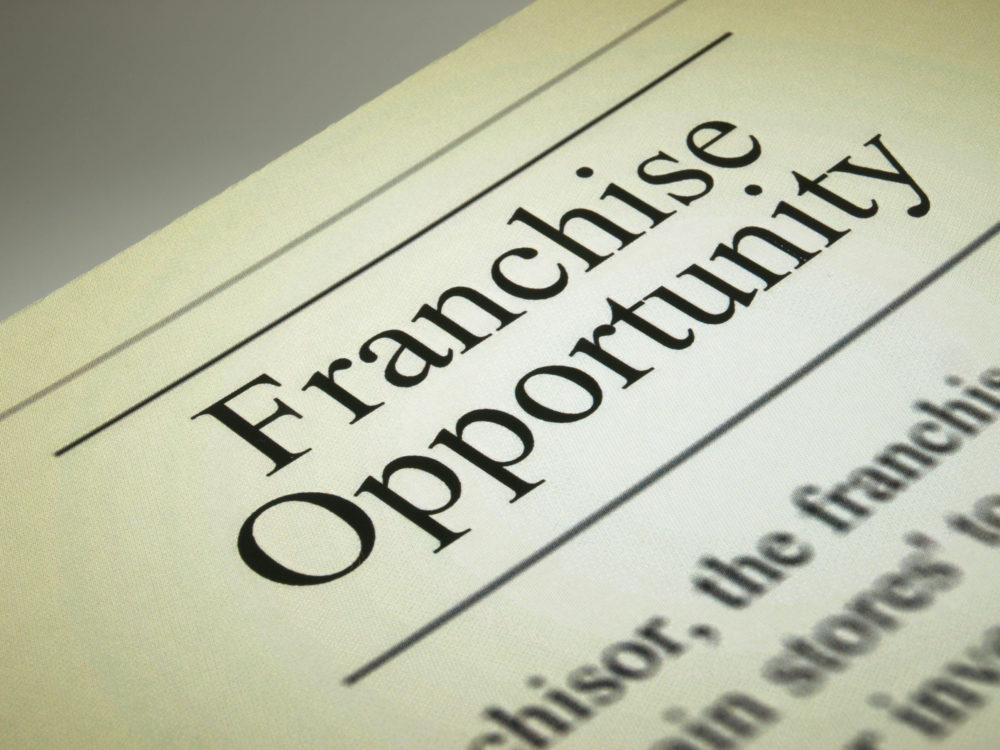Getting involved in a business franchise opportunity can be a great idea for a lot of reasons. From being a profitable venture, to a secure and certain way to make money, a lot of people turn to opening a franchise as a new career option due to its proposed reliability and job security. But, there are lots of things you need to know before getting involved in a franchise to make sure that it’s a step in the right direction for you:
It’s essentially retail work
Once the novelty of getting involved in a successful franchise wears off, you have to accept that running a busy business franchise is essentially a retail business. This can be challenging for those who have become accustom to a more corporate lifestyle and don’t enjoy the difference in the type of responsibilities which a more retail based role offers. Things like cleaning the toilets are as high priority as serving customers and tidying the shop floor, and you have to be prepared to get stuck in with all three.
There are legal issues to be aware of
Getting your head around the basics of franchising law is essential. There are many potential pitfalls that a novice could easily fall down, which can be costly. One of the best ways to avoid getting yourself into any legal trouble is to carefully read up on franchise law and work with an expert legal company, like Withers Worldwide, who can share with you their expert knowledge and advice. Don’t assume you have any other rights, unless you have been specifically informed of them and always go through the small print with a fine toothcomb.
Your employees are essential to your success
One of the best things about a franchise is that you may be able to loan staff from other branches whilst you get up and running to help ensure your success. Using their knowledge to help train your staff is crucial as you’ll need staff that you can rely on to make sure that your franchise is successful. Whilst in the beginning you might end up working really long hours, once you can rely on your staff you’ll be able to delegate with confidence, so look after them.
Getting involved in a franchise is a great business opportunity but it requires a lot of hard work and effort. Don’t get into a franchise as an easy option as you’ll be surprised by the workload you’ve taken on, however if you put your all into it, you should be able to make money from a thriving and profitable venture.
How to choose a franchise
A good franchise scheme is not just about having a good idea, it’s about the franchisor’s ability to prove the idea, have the available resources, both human and financial, and build the infrastructure to ensure the brand can be replicated by franchisees. SmallBusiness.co.uk and Suzie McCafferty, international development director of Smart Cartridge, offer some practical advice on starting a franchise:
- Research the market thoroughly – read the franchise trade press, check out the numerous internet sites and sign up to industry newsletters.
- Do you know anyone who is currently running a franchise business? If so, ask them what the pros and cons are, and whether you could spend time with them in the business to find out if franchising is right for you.
- Ask the franchisor for a list of current franchisees to speak to. If they are reluctant to let you contact them freely, try to establish the reason.
- Always check the validity of the business model and the projections with your own research into the local market – variables such as location, disposable income, product and buying trends can all affect your projections. Your accountant, bank and existing franchisees can help to verify your findings and assumptions.
- Bear in mind your initial start-up costs will need to be deducted from your revenues. Don’t leave yourself short, you may need to secure enough working capital for up to 12 months until your business becomes more established.
- Ensure that you have taken into account all fees that may be charged by the franchisor, and what these fees include. It is also important to check whether there are any other ongoing fees such as training, the purchase or upgrade of equipment, commitment to a minimum advertising expenditure on a monthly/annual basis and so on.
- When running a franchise you may experience good times and bad times due to factors such as seasonal fluctuations or slow payers. Like most businesses it is wise to have either cash reserves or a line of credit to see you through any challenging times.
- Ask yourself what your long-term goals are. Do you hope to eventually sell your business? How long will you run the franchise for? Set yourself solid targets which can be achieved.
If you have considered all of these factors, and are sure that you still want to go ahead, it is essential that you prepare a comprehensive business plan including your own research and trading projections.
Click here to read our business plan dos and don’ts.





